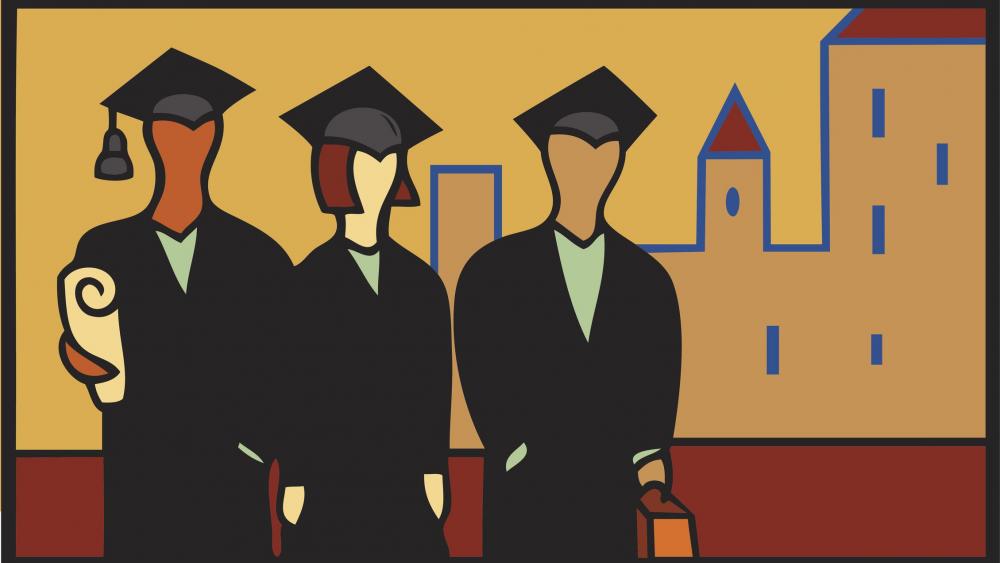If you keep your ear to the rumblings of the 2020 Maryland General Assembly, you will hear one subject above all others: education reform
After you learn that a 100-page bill proposed last week calls for funding of pre-kindergarten programs, higher pay and career opportunities for teachers and enhanced technical training, you then focus on the cost of $4 billion a year over the next decade. The state would pay $2.8 billion, while the counties simultaneously would pay $1.2 billion.
As you dig deeper, you discover that the predominantly Democratic legislature opposes a tax hike for Marylanders. Instead, the legislators plan to explore other funding sources, such as sports betting and tax on internet sales.
You can imagine that skepticism abounds in the halls of the General Assembly. How will local school systems be held accountable for the useful expenditure of large amounts of new money? Will poorly performing schools throughout the state suddenly improve with an infusion of money?
Counties are concerned about paying their share of the cost of the Kirwan Commission recommendations. The hand wringing already has begun.
In 2002, the Thornton Commission proposed major changes to the delivery of education with a price tag, if I recall correctly, of $3 billion. And, believe it or not, the commission identified no funding source.
The Thornton results are questionable. Less than 40 percent of the state’s high school graduates currently can read at the 10th-grade level or pass an Algebra 1 exam.
Though my skepticism is obvious, I view the quality of public school education an essential factor in the socioeconomic success of Maryland. If we lack an educated and capable workforce, we then court disaster in drawing and retaining small-and-big business employers in our state.
The main product in Maryland is human capital. While our agricultural sector is strong and thriving, tourism continues to prosper, our health care providers are among the best in the world, information technology companies produce innovative services and the Port of Baltimore is booming, what we grow best in the Old Line State are people.
Maryland taxpayers must support an education system that thrives not merely on test scores and college enrollment, but also on the types of citizens we are growing and nurturing. I’m suggesting that public schools do what they do best: develop young minds, as well as encourage character development that yields better citizens.
We are fortunate in this country to have superb independent schools that provide an alternative to public schools for parents who can afford a private-school education. Independent schools often flourish when public schools fail to meet high academic and disciplinary standards.
Though the U.S. Constitution does not stipulate provision of a public school education, it implicitly calls for an informed citizenry, without which democracy fails or flounders.
Fiscally sound implementation of the “Blueprint for Maryland’s Future” is key to the vibrancy of a state that cannot depend on a natural resource such as oil, or a strong manufacturing base that once existed primarily in the Baltimore area. We do have world-class hospitals. We do have exceptional colleges and universities.
I’m not ignoring the plentiful but pollution-challenged Chesapeake Bay, a source of food and recreation.
And we do have people anxious to receive a top-flight K-12 public education funded by both the state, counties and the City of Baltimore. The projected cost of $4 billion is eye-popping. Accountability measures become ever more necessary and enforceable.
I’ve witnessed General Assembly sessions mired in resolving difficult financial issues linked to economic turbulence. I’ve seen sessions bogged down by social conflicts like abortion and gay marriage. These subjects often dominate public discourse. Passion and stridency often characterize the conversation.
The current 90-day session offers its 188 legislators an opportunity to focus on a non-partisan topic—albeit one with an alarmingly high price tag—that can determine, if not influence the future of a buoyant state.
Educational reform demands serious debate. It demands a sustainable funding source.
It demands a bipartisan approach, if possible.
Columnist Howard Freedlander retired in 2011 as Deputy State Treasurer of the State of Maryland. Previously, he was the executive officer of the Maryland National Guard. He also served as community editor for Chesapeake Publishing, lastly at the Queen Anne’s Record-Observer. In retirement, Howard serves on the boards of several non-profits on the Eastern Shore, Annapolis and Philadelphia.



Angela Rieck says
Thank you for highlighting what is being done in education. I share your belief that public education is one of the most important things that we can do. But education is not free, nor should it be. Quality education requires quality teachers, quality curriculum and accountability. Quality and accountability are in the eye of the beholder; which makes public education so challenging. But just because it is challenging doesn’t mean that we should give up. Thank you for keeping this on the forefront.